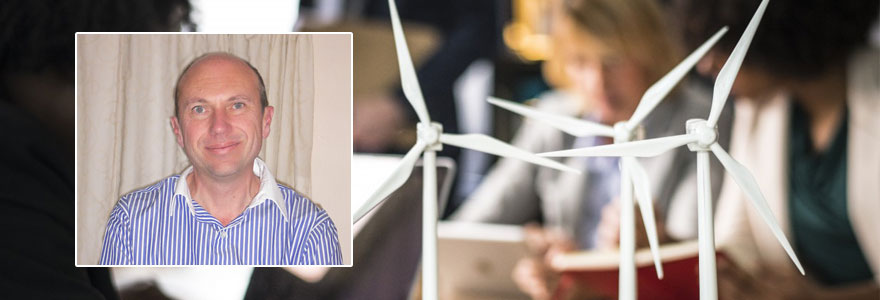News and Updates
Contact
Faculty of Social Science
Social Science Centre
Room 9438
Western University
T. 519-661-2053
F. 519-661-3868
E. social-science@uwo.ca
Preparing firms to face the challenges of the future
March 08, 2019
Story by Rob Rombouts
The world is likely to undergo major changes in the coming years and decades: global warming, the end of internal combustion vehicles, growth in anti-biotic resistance, political uncertainty, and more. Geoffrey Wood is interested in how firms can best be prepared for these changes.
Geoffrey Wood will be the new chair of the DAN Department of Management & Organizational Studies. Wood will also be the inaugural holder of the Dancap Private Equity Chair in Change and Innovation. Wood comes from a position as Dean of Essex Business School at the University of Essex.
Wood’s work brings together insights from finance, international business, human resources management and organizational psychology to research the relationship between national institutional regimes, how investors behave, the implications for managerial strategy, and how these changes impact internal organizational behaviour.
“These are quite distinct fields; yet there are exciting opportunities for new inter-disciplinary understanding and syntheses,” said Wood. “It’s important that you can build on the knowledge of other disciplines to inform your understanding.”
Wood is also interested in how policy changes affect firms. In recent work, he investigated why certain types of national economies have been quicker to adopt energy technologies, how that affects firms and how this is affecting and will affect the prospects of nations.
“There are two aspects of management: one part deals with embedded systems and processes, and the focus is continuity; the second aspect of management is implementing and managing change in response to internal or external pressures,” said Wood. “The tendency is for people to treat these as separate, but they are closely interlinked.”
As Chair in Innovation and Change, Wood is prepared to “grapple with the great questions of the age,” which he describes as “events which are high-probability, but which we are unprepared for at the same time.”
For example, due to global warming, mega-cities such as Los Angeles, Delhi or Beijing may need to be moved, said Wood, a situation people, and firms, are not prepared for.
Another challenge is presented by the rise of anti-biotic resistance bacteria; there are structural impediments to the development of long term drug based solutions.
“We know from history what it was like without antibiotics, but we don’t know what today’s world would be like without,” said Wood. “Long distance air travel would become dangerous. Working conditions associated with sweatshops would not work. Modern factory farming may not work.”
Consumer choices such as a move to electric cars will also have impacts on firms, said Wood. “At least one major car maker is not likely to succeed in making the jump (to electric cars) (as say, happened to Kodak and the digital camera revolution), and this will mean large scale job losses, both in the company and up its supply chain,” said Wood. “This will have an economic impact on at least one major economy.”
These events will require organizations and firms to innovate, but first they have to understand the changes occurring.
“Big changes like these don’t happen very often in history,” said Wood, and these changes are an opportunity to bring together different disciplinary approaches to management, and, indeed, the social (and natural) sciences at large.
Wood said the multidisciplinary approach of DAN Management drew him to the department.
The department’s approach to management is “broadly social science informed, not just understanding daily processes, but how they fit into the wider social, economic and political context,” said Wood.
“In the community of management and organization schools in the UK, the fastest rising schools are social science informed,” said Wood. “They are not trying to be the best in everything; they are focusing on a few areas.”
Within the department, Wood aims to build research leadership and depth, and build the research informed base of education.
Outside of the department, Wood is focused on “building a one-university approach, building complementaries with other areas of the university, both within and beyond the Faculty of Social Science.”
Geoffrey Wood begins his tenure as Chair of the DAN Department of Management & Organizational Studies on July 1st.










